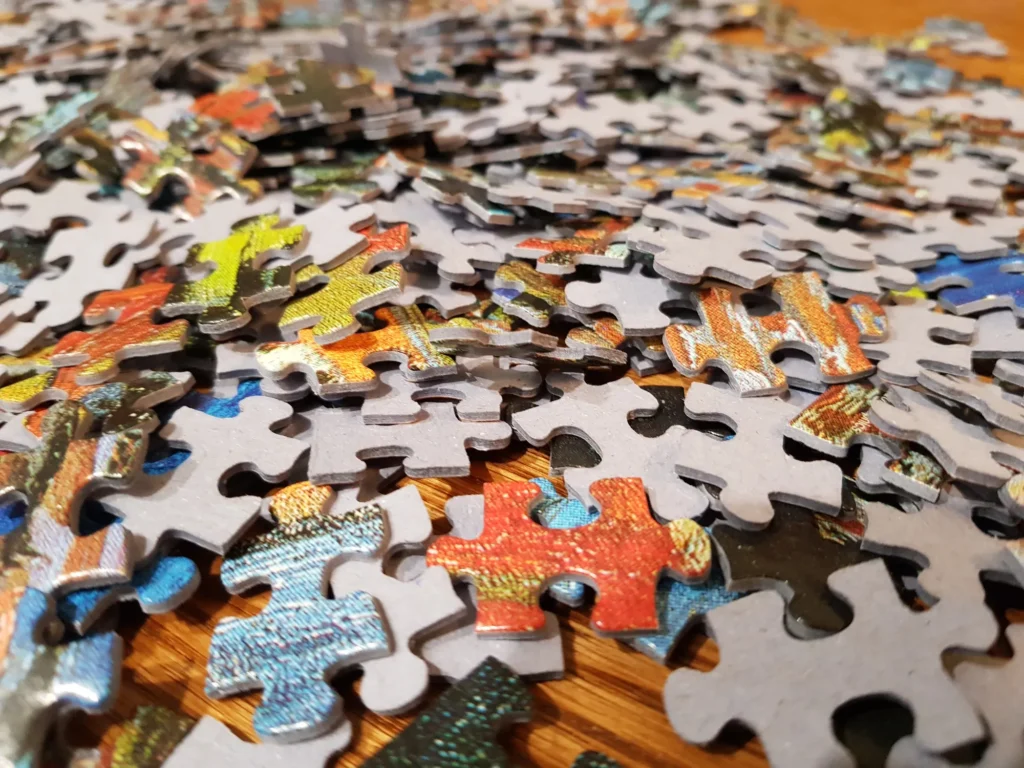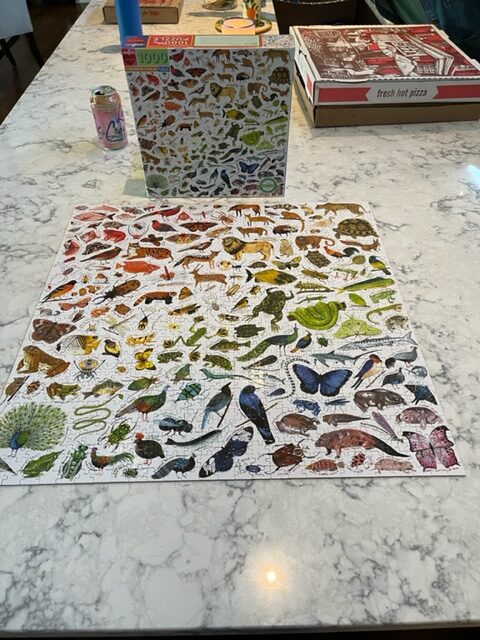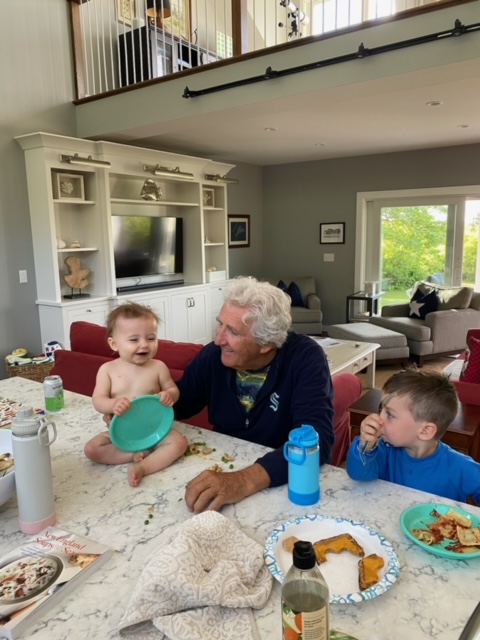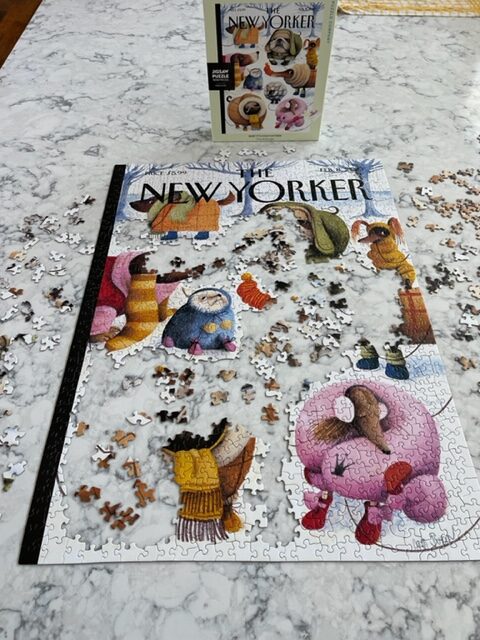What is it about jigsaw puzzles that make them so intriguing?

- The challenge. whether it be a 300, 500 or 1000 piece puzzle. Whether it be a fairly easy, clearly defined scene that you are trying to replicate, or a very difficult one with lots of white and pastel colors, and no clearly defined objects.
- The sense of accomplishment when you find the right piece for a particular spot in the puzzle. The even greater sense of accomplishment when you put together several pieces that make up one small part of the larger puzzle.
- The fact that you can work on it at any time you want. The fact that you can come back to it anytime you want. It awaits you. it lingers.
- The opportunity to spend time on something that takes you away from all the other issues and problems that you might be facing? The opportunity to “get lost” in something that has nothing to do with any other issues you may be addressing. It requires concentration. It is an immersive activity.
- The opportunity to have an interesting conversation with another person while you are both working on the same puzzle. A chance to deepen relationships. A chance to create puzzle buddies.
- The fact that you can have multiple people working on it at one time or another. They can be from different generations. Different walks of life. But all brought together by a jigsaw puzzle.
- The fact that the difficulty of the puzzle offers for anyone working on it the opportunity to ask for help. It gives each of us the chance to say to another person “we could use your help”. What a wonderful message for not only the person reaching out for help, but also the person being asked.
In short, jigsaw puzzles are wonderful — for all the reasons stated above. And I am sure that you can add more.

However, there are some challenges that come with jigsaw puzzles.
- One, finding a table or counter top large enough to provide space for all the pieces. A space that can be set aside for the puzzle for several days, and not be used for some other purpose.
- Two, having a platform/table/counter top for the jigsaw puzzle that cannot be reached by the inquisitive hands of a three and a half year old named Henry or a 9 month year old named Edith, for example. A place where your work will not get dismantled at any point in time.

In doing some research on jigsaw puzzles, I have found out that people who love puzzles are actually called dissectologists.
Apparently, according to others, you might be a dissectologist if you are:
- Observant: you notice the world around you
- Detail-oriented: you remember the little things
- A problem-solver: you can look at situations from all angles
- Highly organized: you love a good system for sorting puzzle pieces
- Patient: you aren’t in a rush to the finish
- Goal-oriented: you are up for a challenge
- Analytical: you like formulating the best strategies for success
- Visual: you enjoy art
Are there any other dissectologists out there besides myself!

As you like puzzles, may I suggest to read a fun and informative new book: The Puzzler by A.J. Jacobs. It contains a wide variety of puzzles to solve and ruminate upon.
It also is a great gift to relatives and friends who have curious minds and love to solve a problem.
Love the topic and writing, but the picture of Henry, Edith and you was the best piece of all❤️
And … if you happen to be full-timing in an RV you can get some foam core to work on the puzzle and store it under your mattress in between 🤗
👍👍